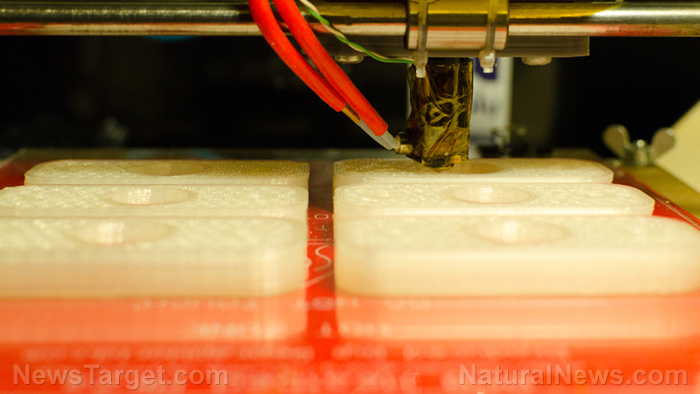Fresh potatoes (not fried ones) can improve blood sugar levels after consumption
03/26/2019 / By Michelle Simmons

People with diabetes often avoid potatoes because they score relatively high on the glycemic index (GI). However, new research suggests that these starchy, tuberous crops may actually be beneficial for diabetics. The study, which was published in the journal Nutrition Research, reveals that phenolic compounds in potatoes may help regulate glycemic response, which generally refers to the changes that occur to blood sugar after consuming of a carbohydrate-containing food.
For the study, a team of researchers at Purdue University aimed to determine the phenolic profiles of different varieties of fresh potatoes and potato chips. They also looked at the potential of potato phenolic extracts in regulating starch digestion and intestinal glucose transport in model systems. The research team used purple-, red-, and white-fleshed fresh potatoes for the study.
They conducted both an in vitro study and a pilot clinical study to determine the differences in glycemic response and gastric emptying between chips from colored and white potatoes. Gastric emptying is a test measuring the time food takes to empty from the stomach and enter the small intestine.
The results of the in vitro trial showed that potato phenolic extracts of purple, red, and white varieties were loaded with anthocyanins and chlorogenic acids. In addition, the results of the clinical study showed that eating purple potato chips resulted in a modest but significantly lower blood sugar at 30 and 60 minutes after consumption compared to white potato chips. However, it did not affect gastric emptying.
Based on these findings, the research team concludes that phenolic compounds in fresh potatoes and potato chips may be beneficial for glycemic response as they can help reduce blood sugar levels. (Related: Potatoes the next superfood? Research reveals a host of health benefits that could sustain you for life.)
Prebiotics from potatoes improves insulin resistance
Prebiotics from potatoes may also help prevent the development of diabetes. A study published in Frontiers in Medicine, Geriatric Medicine shows that a potato-derived resistant starch helps reduce insulin resistance and blood sugar levels in older adults. Known under the brand name MSPrebiotic, the natural, digestion-resistant starch positively affected the gut microbiota and blood glucose levels, according to the study.
For the study, the researchers aimed to determine the effect of consuming MSPrebiotic on glucose, insulin, and insulin resistance in older adults and middle-aged adults. To do this, they recruited 84 participants – half of whom were older people aged 70 or over, while the other half were between 30- and 50-years-old. Then, the researchers further divided both groups into a treatment and a placebo group. Participants in the treatment group received 30 grams (g) of MSPrebiotic every day for 12 weeks, while those in the placebo group received 30 g of Amioca Powder TF, a food starch made from refined corn. The researchers collected blood samples from the participants at baseline, at two weeks, at weeks six and ten, and two weeks after the intervention.
Analysis revealed that MSPrebiotic consumption can enhance metabolism. The treatment group composed of older participants exhibited the most notable changes. Results showed that their levels of blood sugar and insulin levels, as well as their insulin resistance significantly decreased. The researchers believe that these effects occurred due to insulin produced in the pancreas. High levels of blood sugar and increased insulin resistance are the major risk factors for the development of Type 2 diabetes. The researchers also found that the intake of certain prebiotics can improve gut microbiome, which can lead to better control of blood sugar.
Sources include:
Submit a correction >>
Tagged Under:
anthocyanins, blood glucose, blood sugar, carbohydrates, Chlorogenic acid, diabetes, diabetics, digestion, food cures, food is medicine, Fresh, functional food, organics, potatoes, starch
This article may contain statements that reflect the opinion of the author
RECENT NEWS & ARTICLES
COPYRIGHT © 2017 DIABETES SCIENCE NEWS





















